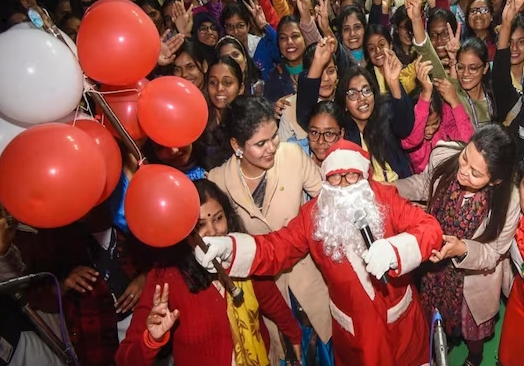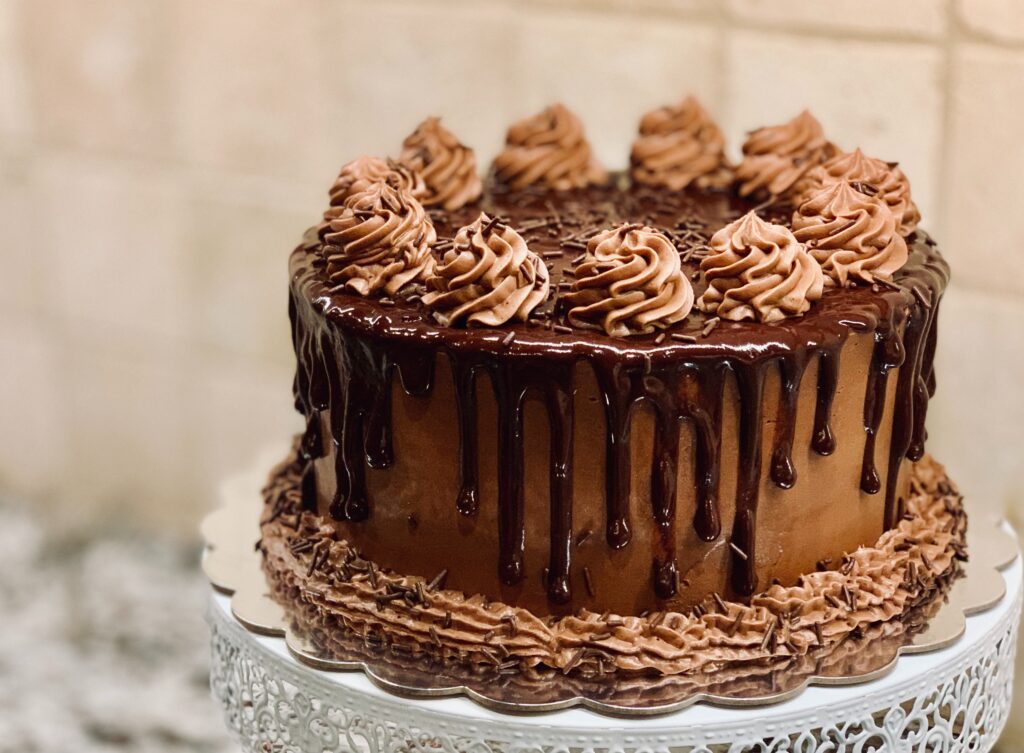Merry Christmas 2023: As the air becomes crisp and the streets twinkle with lights, it’s that time of the year when hearts are aglow with warmth and goodwill. Christmas, a globally celebrated festival, transcends religious and cultural boundaries to bring people together in a spirit of love and joy. This festive season is not just about exchanging gifts or decorating trees; it’s a time to reflect on the values of kindness, generosity, and togetherness. In this article, we delve into the essence of Merry Christmas and explore the various traditions and customs that make this season truly magical with your beloved and family.

Christmas has its roots in the Christian tradition, commemorating the birth of Jesus Christ. The story of the nativity, with its shepherds, angels, and the guiding star, holds a central place in Christian teachings. Over time, Christmas has evolved to incorporate various customs and practices from different cultures, creating a rich tapestry of festivities.
Table of Contents
What are the traditions and customs of Christmas?
- Decorations: One of the most visible signs of Christmas is the decoration of homes, streets, and public spaces. Christmas trees adorned with lights, ornaments, and tinsel are a universal symbol of the season. In some cultures, nativity scenes are set up to recreate the birth of Jesus, while others focus on colorful lights and festive wreaths.
- Gift-giving: The act of giving and receiving gifts is a cherished tradition during Christmas. It symbolizes the spirit of generosity and the joy of sharing. Families and friends come together to exchange thoughtful presents, fostering a sense of connection and love.
- Feasting: Christmas is synonymous with indulgent feasts and delicious treats. Traditional dishes vary from region to region but often include roast turkey, ham, festive desserts, and a variety of seasonal delights. The shared experience of a Christmas meal strengthens the bonds of family and friendship.
- Caroling and Music: Christmas carols and festive music contribute to the joyful atmosphere. Whether it’s the timeless classics like “Silent Night” or lively tunes like “Jingle Bells,” music plays a significant role in setting the mood for celebration.
- Acts of Kindness: Christmas encourages acts of kindness and goodwill toward others. Many people take the opportunity to volunteer, donate to charities, or participate in community events to spread joy to those in need.

How to make a Christmas cake?
Ingredients

- 1kg mixed dried fruit (use a mix of raisins, sultanas, currants, cherries, cranberries, prunes or figs)
- zest and juice 1 orange
- zest and juice 1 lemon
- 150ml brandy, Sherry, whisky or rum, plus extra for feeding
- 250g pack butter, softened
- 200g light soft brown sugar
- 175g plain flour
- 100g ground powder
- ½ tsp baking powder
- 2 tsp mixed spice
- 1 tsp cinnamon powder
- ¼ tsp ground cloves
- 100g flaked almonds
- 4 large eggs
- 1 tsp Vanilla extract
Method
- Put 1kg mixed dried fruit, the zest, and juice of 1 orange and 1 lemon, 150ml brandy or other alcohol, 250g softened butter, and 200g light, soft brown sugar in a large pan set over medium heat.
- Bring to a boil, then lower the heat and simmer for 5 mins. Tip the fruit mixture into a large bowl and cool for 30 minutes.
- Heat oven to 150C/130C fan/gas 2. Line a deep 20cm cake tin with a double layer of baking parchment, then wrap a double layer of newspaper around the outside – tie with string to secure.
- Add 175g plain flour, 100g ground almonds, ½ tsp baking powder, 2 tsp mixed spice, 1 tsp ground cinnamon, ¼ tsp ground cloves, 100g flaked almonds, 4 large eggs, and 1 tsp vanilla extract to the fruit mixture and stir well, making sure there are no pockets of flour.
- Tip into your prepared tin, level the top with a spatula, and bake in the center of the oven for around 2 hrs. After 2 hrs insert a skewer into the centre of the cake to test if it’s done. If any wet cake mixture clings to the skewer, return the cake to the oven for another 10 mins then check again and keep cooking, checking every 10 mins until the skewer comes out dry.
- Remove the cake from the oven, poke holes with a skewer, and spoon over 2 tbsp of your chosen alcohol. Leave the cake to cool completely in the tin.
- To store, peel off the baking parchment, and store in a cake tin. Feed the cake with 1-2 tbsp alcohol every fortnight, until you ice it.
- Don’t feed the cake for the final week to give the surface a chance to dry before icing.
Why is Christmas celebrated globally?
While Christmas has Christian origins, its celebration has become truly global. People of diverse backgrounds and beliefs join in the festivities, appreciating the universal values of love, compassion, and peace. In many countries, Christmas is a public holiday, and cities are transformed into winter wonderlands with festive markets, parades, and events that cater to people of all ages.
Christmas cheers in India
How do Indians celebrate Christmas?
Christmas is celebrated in India with a unique blend of traditions, reflecting the country’s cultural diversity and the influence of various communities. While Christians make up a significant portion of the population, Christmas is widely embraced by people of all faiths as a secular celebration. Here’s an overview of how Christmas is celebrated in India:
- Religious Observances: For the Christian community in India, Christmas holds deep religious significance. Midnight Mass on Christmas Eve is a central part of the celebration, where churches are beautifully decorated, and hymns and prayers are conducted to mark the birth of Jesus Christ.
- Decorations: Christmas decorations are a common sight in India, both in Christian households and public spaces. Christmas trees, adorned with lights, ornaments, and stars, are popular. Many families also display nativity scenes, depicting the birth of Jesus, and colorful paper lanterns.
- Gift-giving: The tradition of giving and receiving gifts is a universal aspect of Christmas in India. Families exchange presents, and many people also participate in gift exchanges with friends and colleagues. In urban areas, shopping malls and markets are adorned with festive displays to attract shoppers looking for the perfect gift.
- Feasting: Christmas feasts in India are diverse and reflect regional culinary preferences. While some regions indulge in traditional Christmas cakes, cookies, and puddings, others may prepare special local dishes. In Goa, for example, the Christmas feast often includes a variety of seafood dishes.
- Carol Singing: Carol singing is a widespread tradition during the Christmas season. Groups of children and adults visit homes, sing carols, and spread festive cheer. In some communities, carol singing is organized in public spaces, creating a joyous atmosphere for everyone to enjoy.
- Community Celebrations: Many communities, regardless of religious affiliation, come together to celebrate Christmas. Public spaces are often adorned with lights and decorations, and cultural events, including music and dance performances, add to the festive ambiance.
- Santa Claus and Christmas Parades: The image of Santa Claus is well-loved in India, especially among children. Many schools, churches, and community organizations organize events featuring Santa Claus distributing sweets and gifts. Some cities also host Christmas parades with floats, music, and vibrant displays.
- Acts of Charity: Christmas is a time for giving, and many individuals and organizations in India engage in charitable activities during the festive season. Donations, food drives, and visits to orphanages or hospitals are common ways people contribute to the well-being of those less fortunate.
In summary, Christmas in India is a colorful and joyous celebration that brings people together across religious and cultural lines. The festivities are marked by a spirit of unity, love, and goodwill, making it a special time for communities to share in the joy of the season.
Why should we celebrate Christmas?
The celebration of Christmas holds various meanings for different people, and individuals may choose to celebrate for personal, religious, or cultural reasons. Here are several reasons why people around the world choose to celebrate Christmas:
- Religious Significance: For Christians, Christmas commemorates the birth of Jesus Christ, and the celebration is deeply rooted in religious traditions. The nativity story, the central theme of Christmas, symbolizes hope, love, and the promise of salvation.
- Cultural Tradition: Christmas has become a significant cultural event that transcends religious boundaries. Many people, regardless of their religious beliefs, celebrate Christmas as a cultural tradition, embracing the festive spirit, exchanging gifts, and enjoying time with family and friends.
- Family Bonding: Christmas provides an opportunity for families to come together and strengthen bonds. The holiday season often involves shared meals, gift-giving, and quality time spent with loved ones, fostering a sense of unity and connection.
- Acts of Kindness: Christmas encourages acts of kindness and generosity. The emphasis on giving, whether through gifts, donations, or volunteer work, promotes a spirit of goodwill and compassion, fostering a sense of community.
- Joy and Festivity: The festive atmosphere that surrounds Christmas brings joy and happiness to communities worldwide. Bright decorations, cheerful music, and the exchange of gifts contribute to a sense of celebration and merriment that uplifts spirits during the holiday season.
- Traditions and Rituals: Many people celebrate Christmas because of the joy derived from participating in various traditions and rituals. Decorating Christmas trees, exchanging gifts, singing carols, and enjoying special festive foods are cherished activities that create lasting memories.
- Reflection and Gratitude: Christmas often prompts reflection on the year gone by and encourages gratitude for the blessings in one’s life. It’s a time to appreciate the importance of love, kindness, and the meaningful relationships that enrich our lives.
- Community and Togetherness: Christmas serves as a time for communities to come together. Shared celebrations, whether in churches, neighborhoods, or workplaces, create a sense of togetherness and solidarity, fostering a positive and inclusive atmosphere.
- Cultural Exchange: In multicultural societies, Christmas provides an opportunity for cultural exchange. People from diverse backgrounds may share and appreciate each other’s customs, enriching the overall celebration with a tapestry of traditions.
- Festive Spirit and Anticipation: The anticipation leading up to Christmas, marked by festive decorations, holiday music, and the excitement of gift-giving, brings a sense of joy and anticipation that many find invigorating and uplifting.
Ultimately, the decision to celebrate Christmas is a personal one, influenced by individual beliefs, cultural context, and the desire to partake in a global celebration of joy, love, and goodwill. Whether for religious reasons, cultural traditions, or the joy of shared festivities, the celebration of Christmas continues to hold special significance for millions around the world.
For other articles:
https://bulletnews18.com/amazon-christmas-sale-is-live-on-smartphone/
https://bulletnews18.com/dive-into-the-deep-anticipating-aquaman-2s-oceanic-odyssey/








